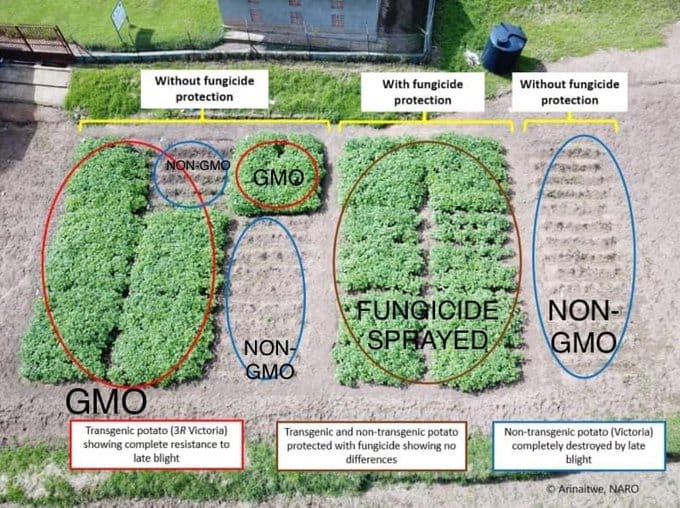
The potato (Solanum tuberosum L.) holds the distinction of being the third most crucial food crop worldwide, playing a vital role in the food supply of East and Central Africa, including countries such as Burundi, D.R. Congo, Kenya, Rwanda, and Uganda. Late blight, caused by Phytophthora infestans, poses a major challenge to potato production in the region, often leading to crop losses ranging between 13 and 60 percent.
Scientists have conducted trials on genetically modified (GM) potatoes, yielding promising results in combating late blight, a disease known for causing substantial crop losses. The GM potato variety, Vic.172, exhibited complete resistance to late blight in field trials, potentially mitigating the need for pesticides.
The genetically modified potato, Vic.172, has demonstrated remarkable resistance to late blight, a disease responsible for significant crop losses. Over the past 30 years, more than 4400 risk assessments globally have concluded that GM crops do not pose greater risks than non-GM crops.
The genetically modified potato variety, Vic.172, integrates three naturally occurring resistance genes (R-genes), rendering it completely resistant to late blight in field trials conducted in Uganda. In comparison with the non-modified variety Victoria, from which Vic.172 is derived, the field trials over three seasons consistently demonstrated Vic.172’s total resistance to late blight, while the Victoria plants succumbed to the disease within 60–80 days after planting.
In addition to providing robust protection against late blight, the genetically modified potato variety is poised to deliver substantial economic gains for small-scale farmers. By eliminating the need for pesticides, Vic.172 can potentially contribute to a 30 percent increase in productivity without incurring the costs associated with pesticides, resulting in a notable profit upsurge of 44 percent.
The adoption of Vic.172 also holds the promise of reducing pesticide use, thereby benefiting the environment by curbing the reliance on agrochemicals and reducing fuel consumption and labour required for pesticide application. Additionally, it minimizes farmers’ exposure to potentially harmful chemicals.
The advancements in genetically modified potatoes, particularly the success of Vic.172 in combatting late blight and its potential economic and environmental benefits, signal a promising development in potato cultivation and agricultural sustainability.







